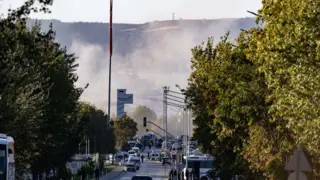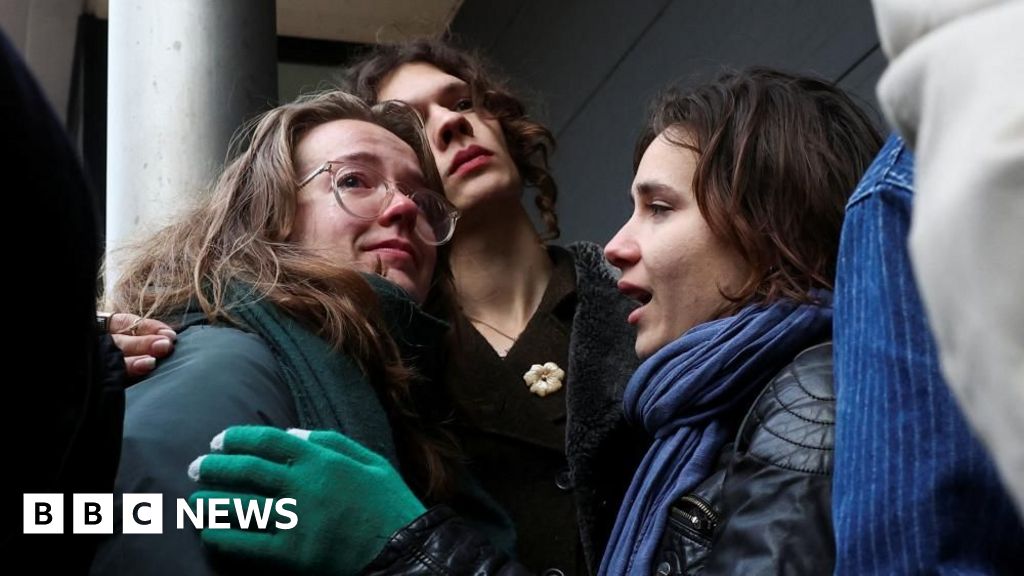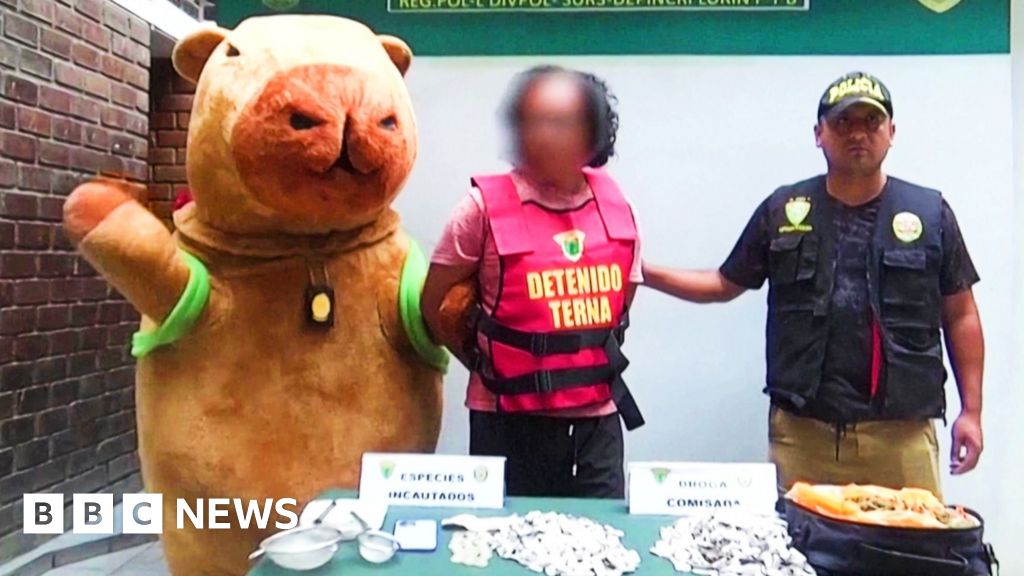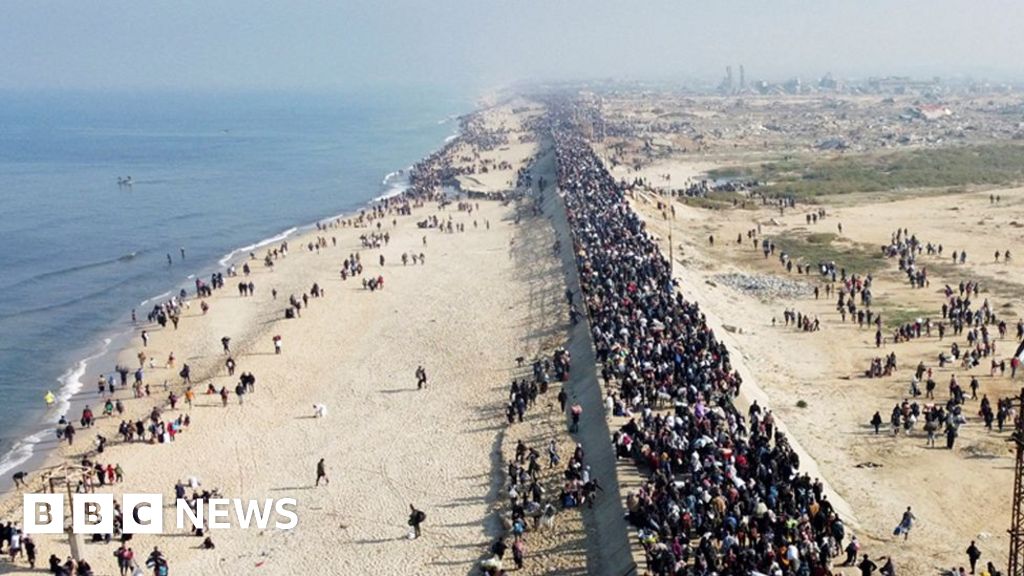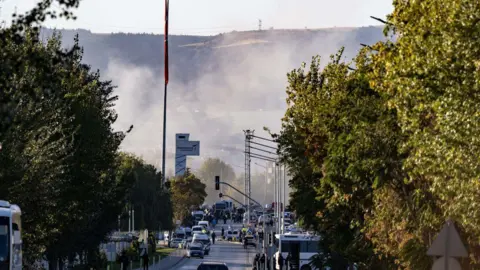 Getty Images
Getty ImagesAt least four people have been killed and 14 injured in an attack at the headquarters of an aviation company near the Turkish capital Ankara, authorities have confirmed.
Interior Minister Ali Yerlikaya said three of the injured were in critical condition and that two attackers, “a woman and a man, have been neutralised”.
Initial images shown by the NTV television channel were of a large cloud of smoke in front of the entrance of Turkish Aerospace Industries (TAI), which is located some 40km (25 miles) outside the capital.
It is not yet clear who was behind the attack, and no group has said it carried it out.
It is also not clear how many people were involved in the attack and if there are other suspects to be apprehended.
Local media is reporting that blast took place around the time of a shift change, and staff had to be directed to shelters.
Some outlets have carried a photograph purporting to show one suspect climbing over a turnstile and entering the building holding a gun.
Turkish President Recep Tayyip Erdogan – who is in Russia for the Brics summit – gave his reaction.
“I condemn this vile terror attack and wish God’s mercy on our martyrs,” he said during a meeting with Russian President Vladimir Putin, in remarks broadcast live on TV.
Ankara metropolitan mayor Mansur Yavas said in a statement earlier on Wednesday that he was “deeply saddened” by the news.
“I wish God’s mercy upon our martyrs and a speedy recovery to our wounded. We condemn terrorism. My condolences.”
Justice Minister Yilmaz Tunc announced on X that the Ankara Chief Public Prosecutor’s Office has launched a “judicial investigation” into the incident.
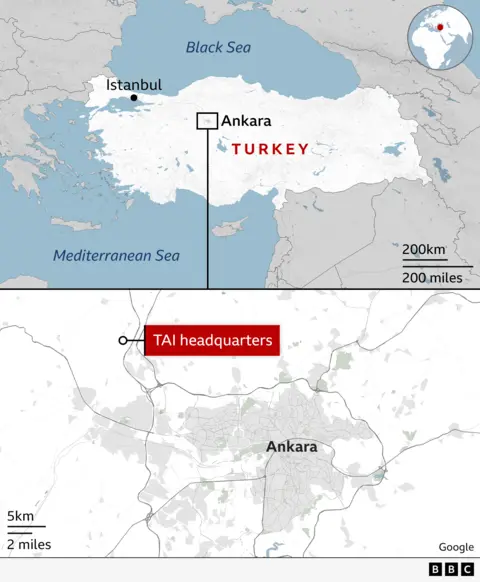
TAI is a key player in Turkey’s aerospace industry, designing, developing and manufacturing various aircraft for commercial and military use.
It is the company designated by the Nato member to be the licensed manufacturer for the US-designed F-16 fighter jets. Tai also plays a role in modernising older aircraft for use by the Turkish military.
The firm’s two principal owners are the Turkish Armed Forces and a civilian arm of the Turkey’s government charged with improving its defence capabilities and manage military procurement.
The blast took place as a major trade fair for defence and aerospace industries was going on in Istanbul this week.
Who might be behind this attack?
Turkey is no stranger to attacks branded as terrorism.
Historically, these have mostly been blamed on Kurdish separatists, whose camps in northern Syria and elsewhere in the region have come under repeated air strikes from the Turkish air force.
But the Islamic State group (IS) is also present in Turkey, and then there is the question of the Turkish aerospace industry, which produces drones that have changed the entire course of a war between Armenia and Azerbaijan.
In the early stages of Russia’s full-scale invasion of Ukraine, the latter made major use of Turkish-made Bayraktar drones to target Russian tanks before Ukraine began mass-producing its own drones.
So the key question now, as the investigation into this attack gets under way, is who would benefit from doing this and why?
